
We all know there have been many changes in the search results during the last year.
- AI Overviews.
- Reddit increases in visibility.
- Google’s site reputation abuse policy.
- And the list goes on and on.
However, one key topic has been overlooked: Google’s major updates to ecommerce search results, which deserve more attention.
- March 2022: They launched product grids that show products directly.
- June 2022: They started testing search filters on the left sidebar.
- June 2022: They integrated local elements by including local “In-Store Nearby” results.
- January 2024: Now, they show five product grid results instead of four.
- September 2024: They began to integrate product results in AI Overviews.
While these changes may seem small on their own, combined, they have a significant impact over time.
The new ecommerce search experience
After all these changes, where does it leave us? Let’s examine a couple of search results, using the query “espresso machines” as an example.
Going down to the organic results, users see an immediate list of product grids before any of the other organic results.
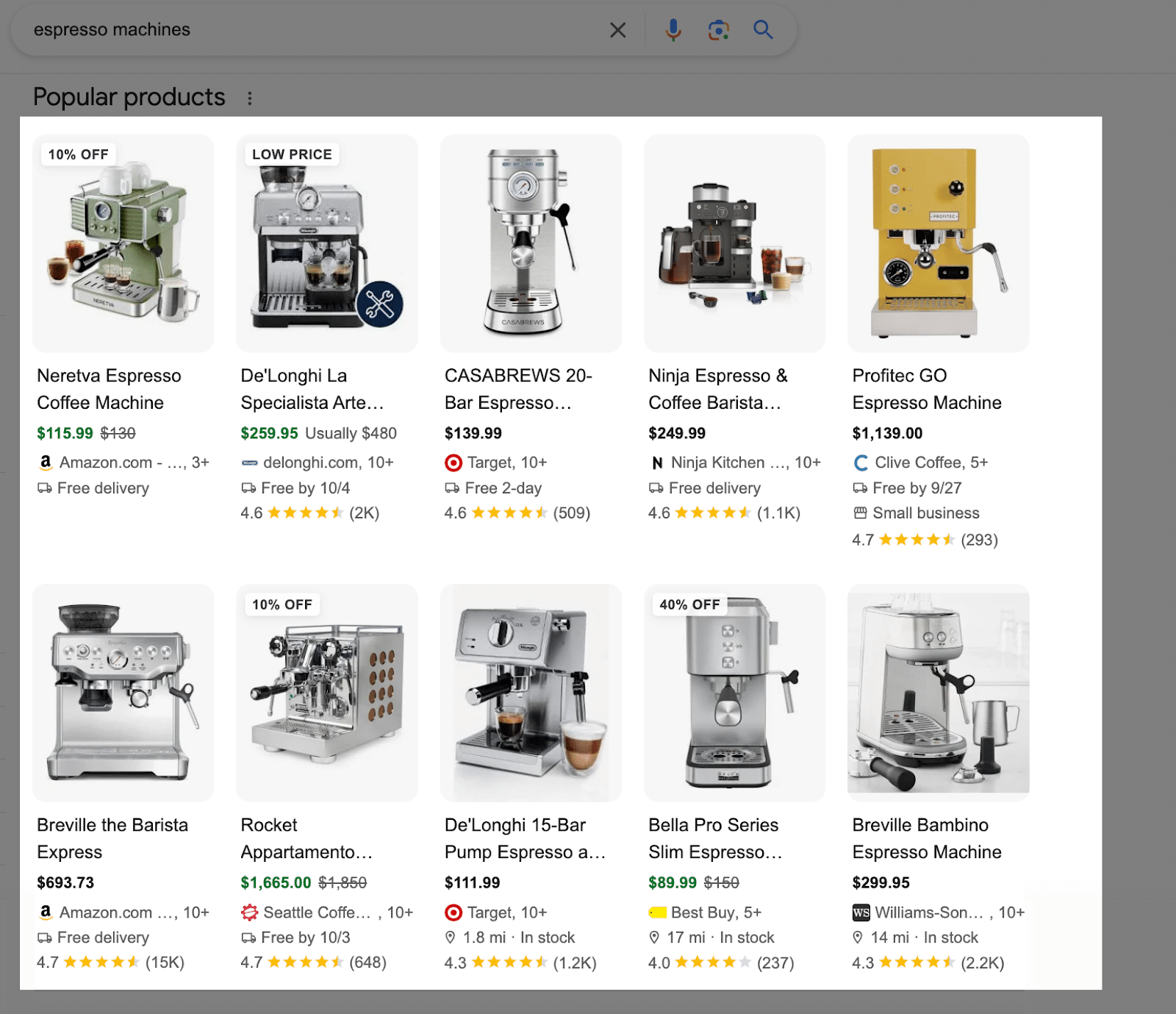
Now, that’s only half the picture. As mentioned, the Refine results section is on the left sidebar.
This section basically gives the user faceted navigation-like capabilities directly in the results themselves.
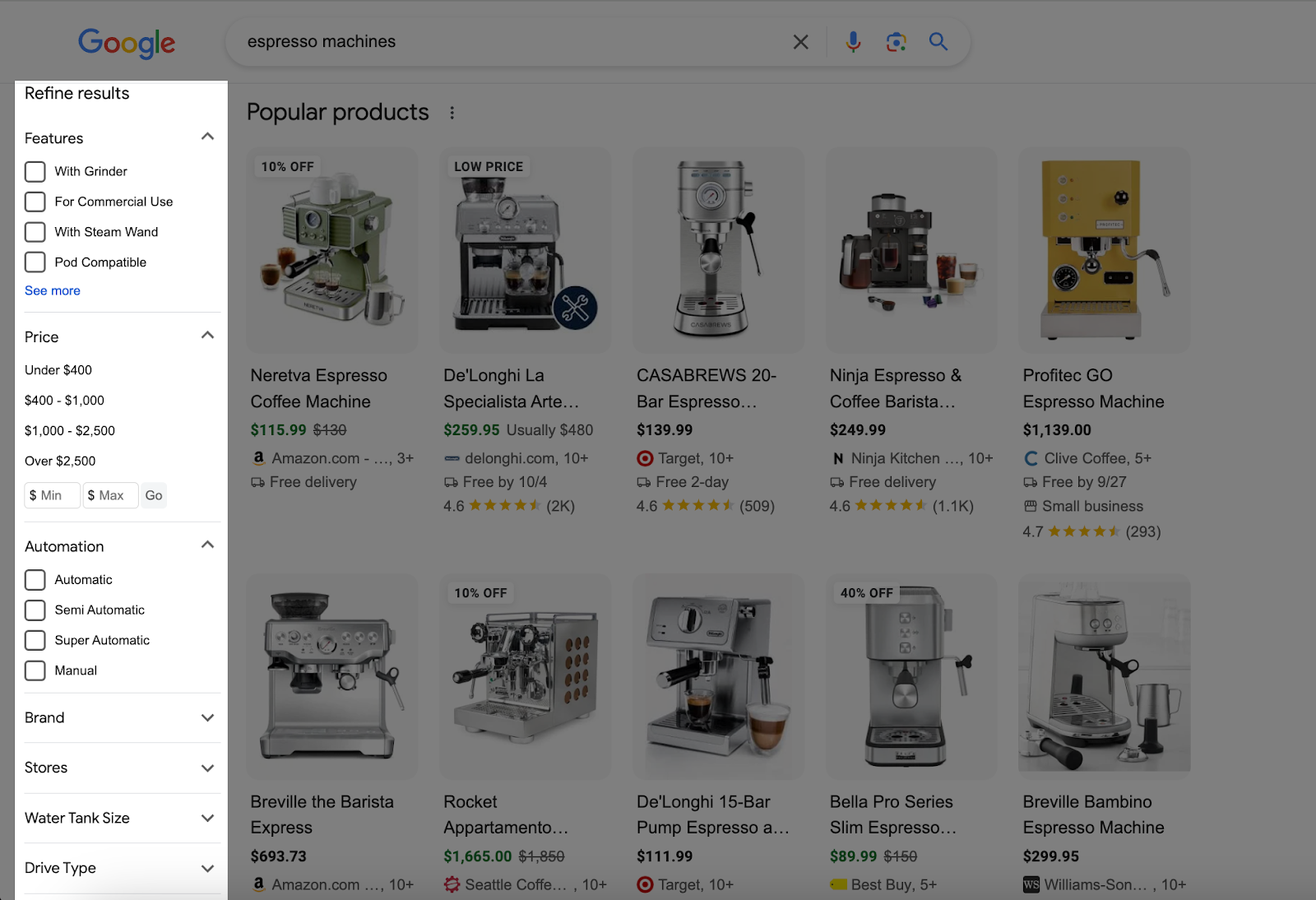
Assume users don’t scroll past the initial results. If these products aren’t what they want, they refine the search by selecting specific features.
For example, choosing an “Automatic” machine “With Grinder” prompts Google to run a new search with those terms added to the original query.

What do we see when we look at these results?
Once again, here’s another result where the product grids appear before everything else in the organic result.
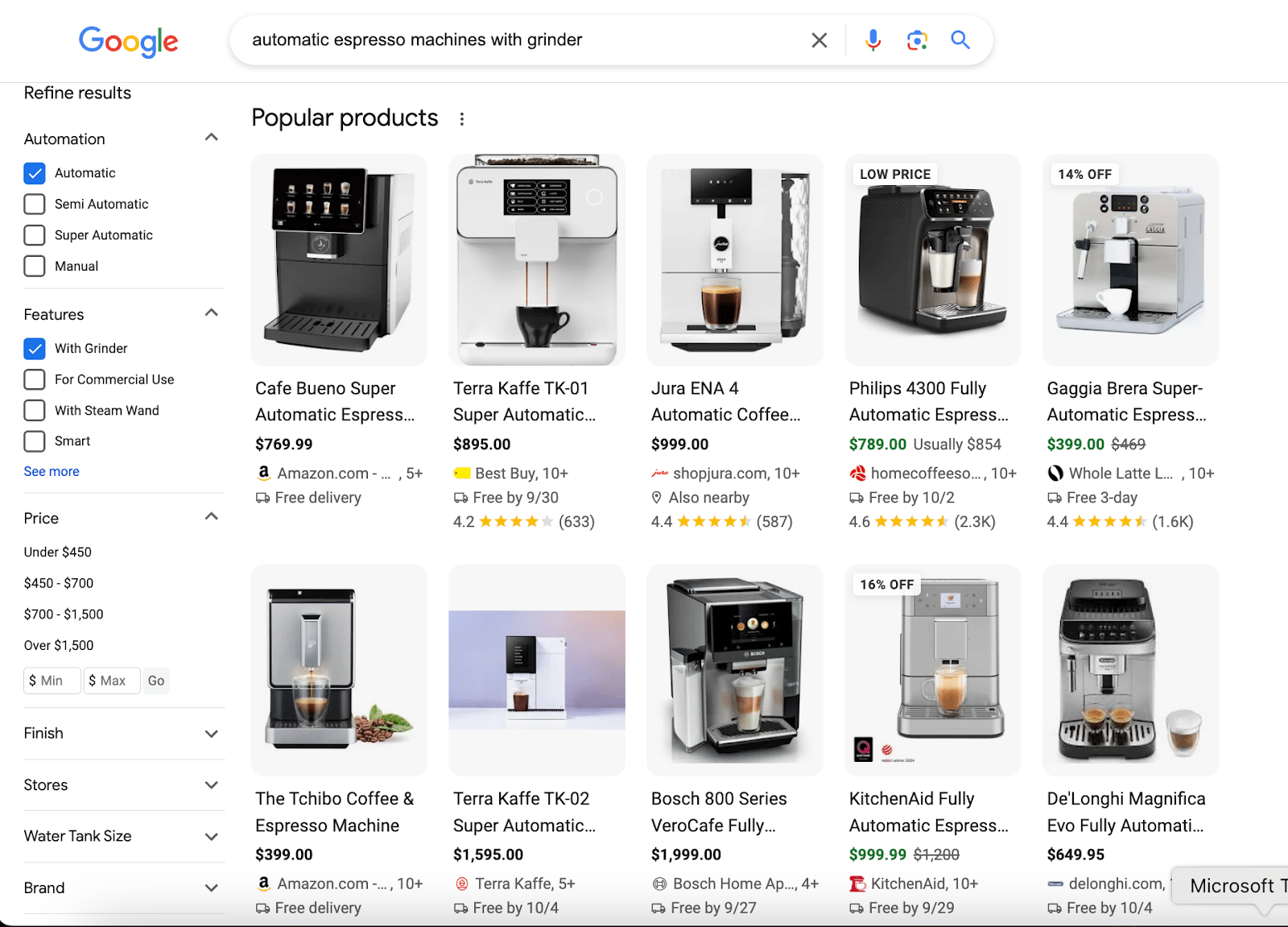
Clicking one of these results opens an expandable right-side sidebar filled with detailed information about the product.
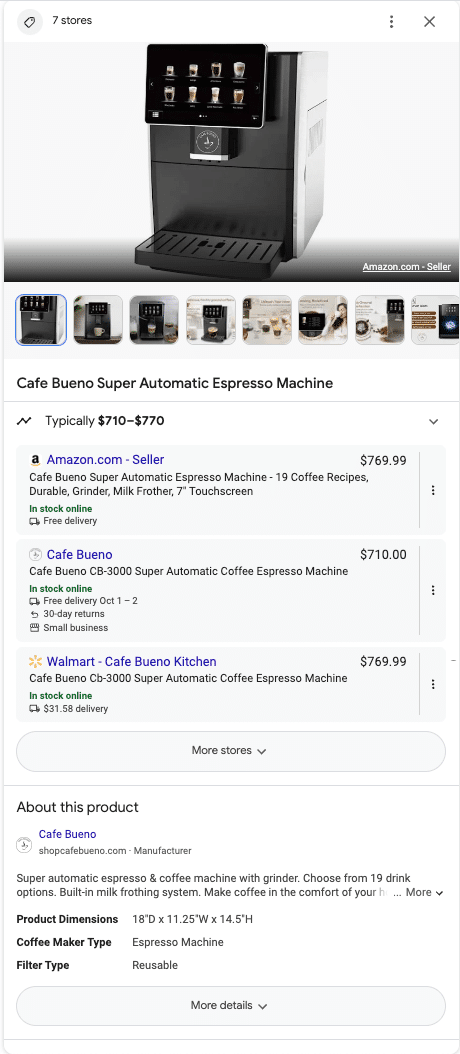
Included directly in the SERP experience are:
- Scrollable product images.
- Pricing.
- Third-party retailers.
- Product descriptions.
- Dimensions.
- And more.
We haven’t even clicked on a website link yet.
Now, let’s look at the first ranking result for the query “espresso machine.” Notice how it feels eerily similar to what we just experienced.
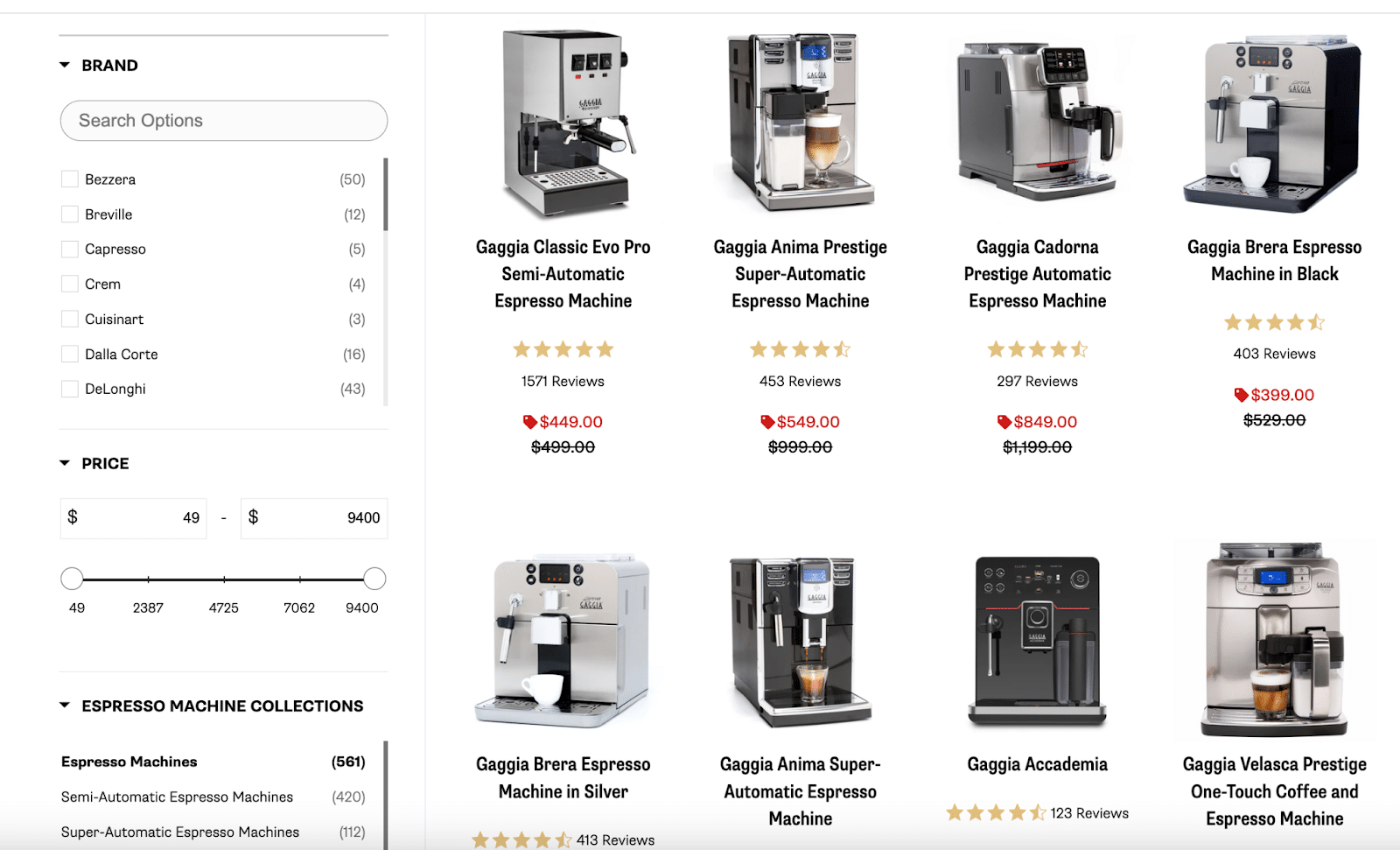
The death of the category page
What do all these changes add up to?
It seems Google is trying to replicate the experience of a traditional category page directly within the search results.
By displaying products, filters, reviews, pricing and more, Google is creating an Amazon-like experience without the need to visit a third-party site.
While category pages still matter, Google’s focus is clearly shifting toward product pages rather than traditional category pages.
Why is Google doing this?
In 2021, Faisal Masud wrote a thought-provoking article, “The Last E-Commerce Duel Between Amazon and Google,” a must-read for anyone in ecommerce. He highlights:
- The long-standing competition between Google and Amazon for ecommerce market share.
- Google’s missteps and the decline in its product search market share from 54% to 46% by 2018.
- That 74% of product searches now start on Amazon.
Many of us likely still bypass Google entirely when shopping online, which represents a huge missed opportunity for Google.
This makes Amazon perhaps its biggest competitor – even more so than other search engines.
A renewed focus on product pages
In ecommerce SEO, category pages have long been the cornerstone of strategy, mapped to high-value queries and receiving the most attention.
However, with Google’s product grids, rich features and faceted search taking over, category pages are losing visibility.
To align with Google’s direction, we need to shift our SEO strategies and give equal priority to product pages, which are now featured in search results.
Previously, product pages were often overlooked.
Now, we must optimize them, updating title tags, H1s and product data and ensuring that key features users search for are clearly highlighted in the listings.
Dig deeper: Product page SEO: A complete guide
The rise of product data and SEO
Like structured data, product data is a feed that allows search engines to quickly and efficiently understand key information about a given SKU. Traditionally, SEOs have left this to the paid media team.
What many don’t realize is that Google has its own ecommerce SEO guide, which emphasizes the importance of product data.
Google dedicates an entire page to it and highlights its significance in multiple sections throughout the guide.
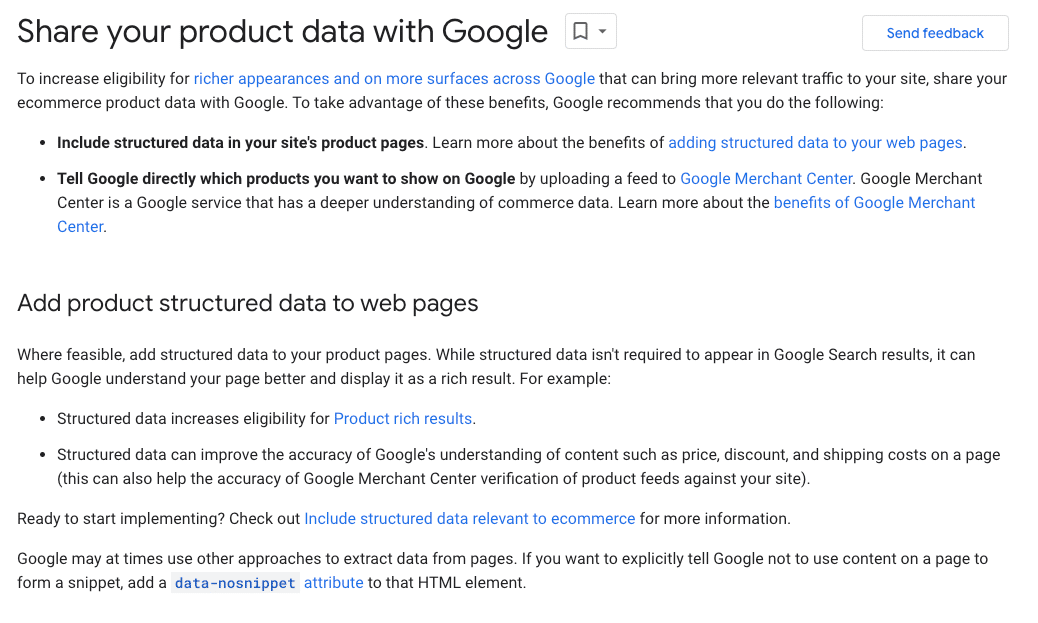
Brodie Clark has conducted extensive tests on the new product grid features, often highlighting the influence of Merchant Center listings (product data feeds) on these results.
It’s evident that product feeds play a crucial role in product grids, making them something that can no longer be overlooked.
Ensuring that these feeds are submitted to Google, accurate, reflect long-tail keywords and are as complete as possible is now essential.
Dig deeper: Shopping graph optimization: The future of ecommerce SEO
An opportunity to appear for high-volume queries
Historically, we’ve prioritized category pages, especially those targeting high-volume queries.
For instance, we’d prefer to rank for a broad “jeans” category page rather than a more specific “men’s ripped jeans” page.
However, with Google now acting as a de facto category page, we need to shift our focus to long-tail queries.
This shift offers a significant opportunity, particularly for brands that aren’t dominant players.
For example, searching for the highly competitive query “jeans” typically returns major brands like American Eagle, Levi’s and H&M.
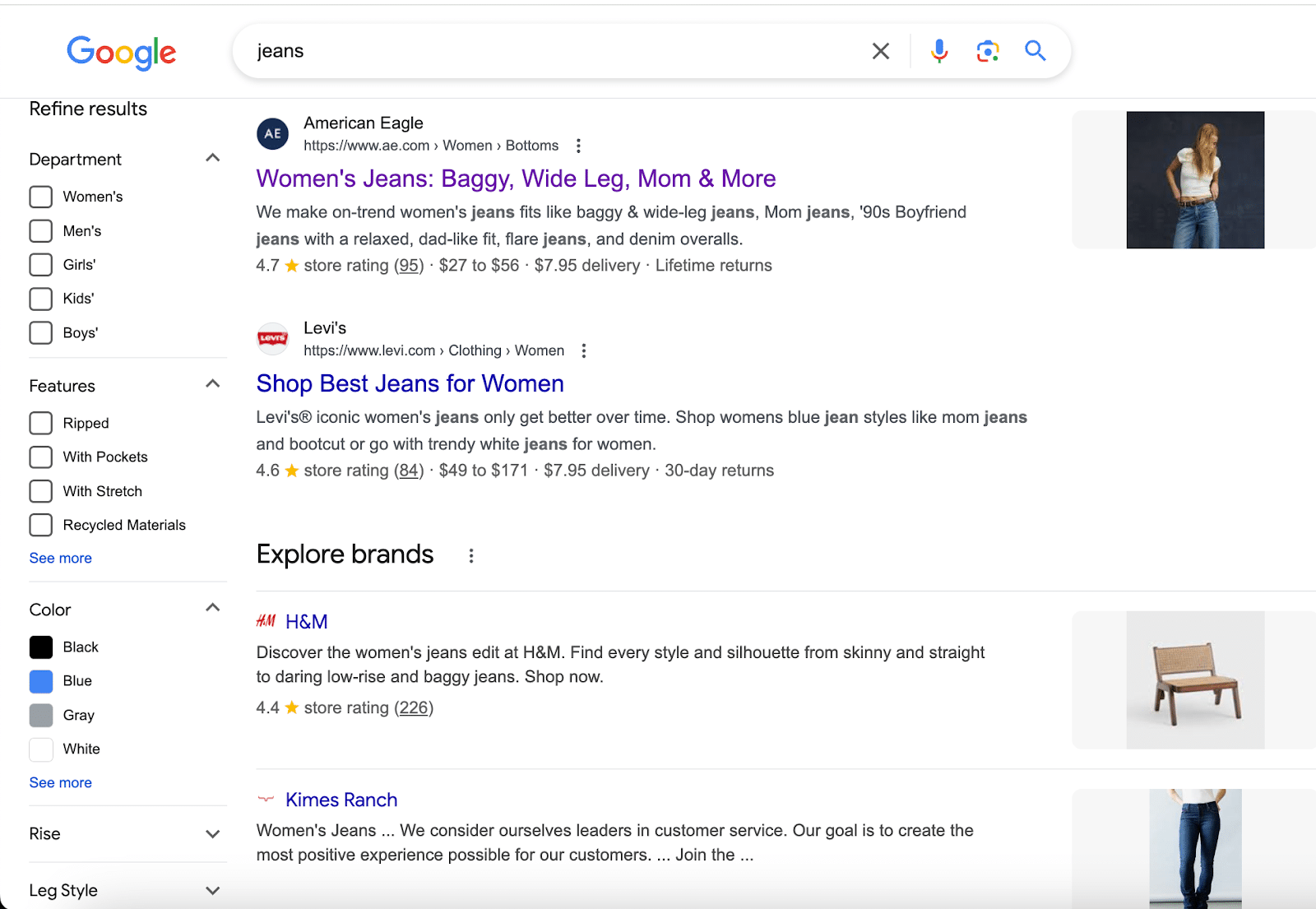
Unless you’re one of these national retailers, most SEOs will tell you to ignore this query completely. It’s way too competitive to be relevant for.
However, what happens when I start filtering using the options on the side?
Google is now my category page, so I want to see options that suit me better. I’m looking for “size 36 flare jeans.”
I applied the filtering options, and Google adjusted my query.
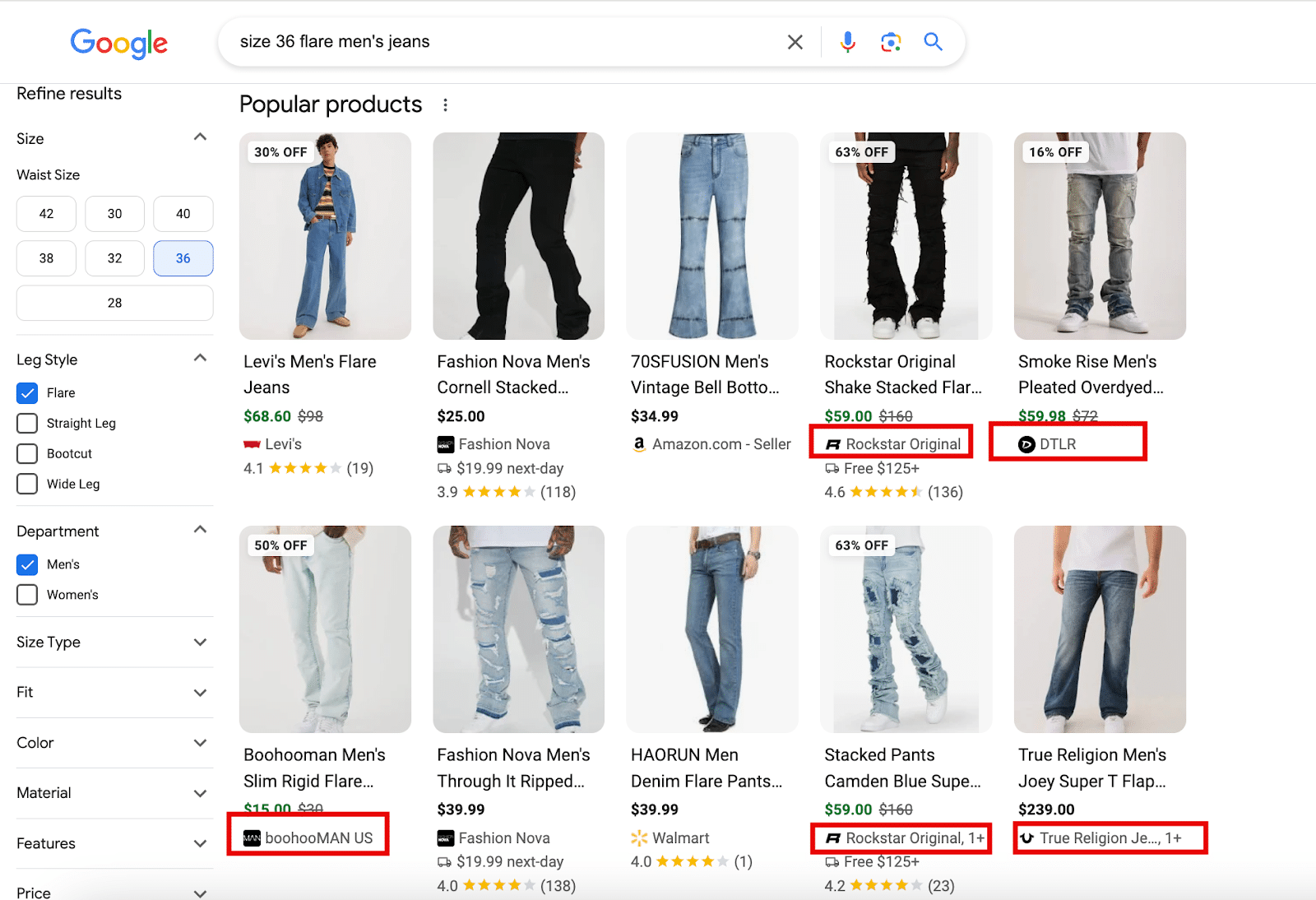
Now, looking at the search results, we see that we still have some big players.
However, notice how smaller brands are eligible:
- Rockstar Original.
- boohooMAN.
- True Religion.
They’ve optimized for the long tail and are now included.
The beauty of this is that they’ve latched on the primary query, “jeans.”
By optimizing for the long tail, they now get visibility for a query that was never possible before.
A tough time for affiliate sites
Google’s change also has large implications for a completely different type of site: affiliates.
With all the products, rich features and comparisons, there is simply no room for affiliates.
Informational content doesn’t serve an Amazon-like experience, so it’s deprioritized.
Take Wirecutter as an example – the affiliate site everyone wants to be like.
Unsurprisingly, they have a “Best Coffee Makers” article.
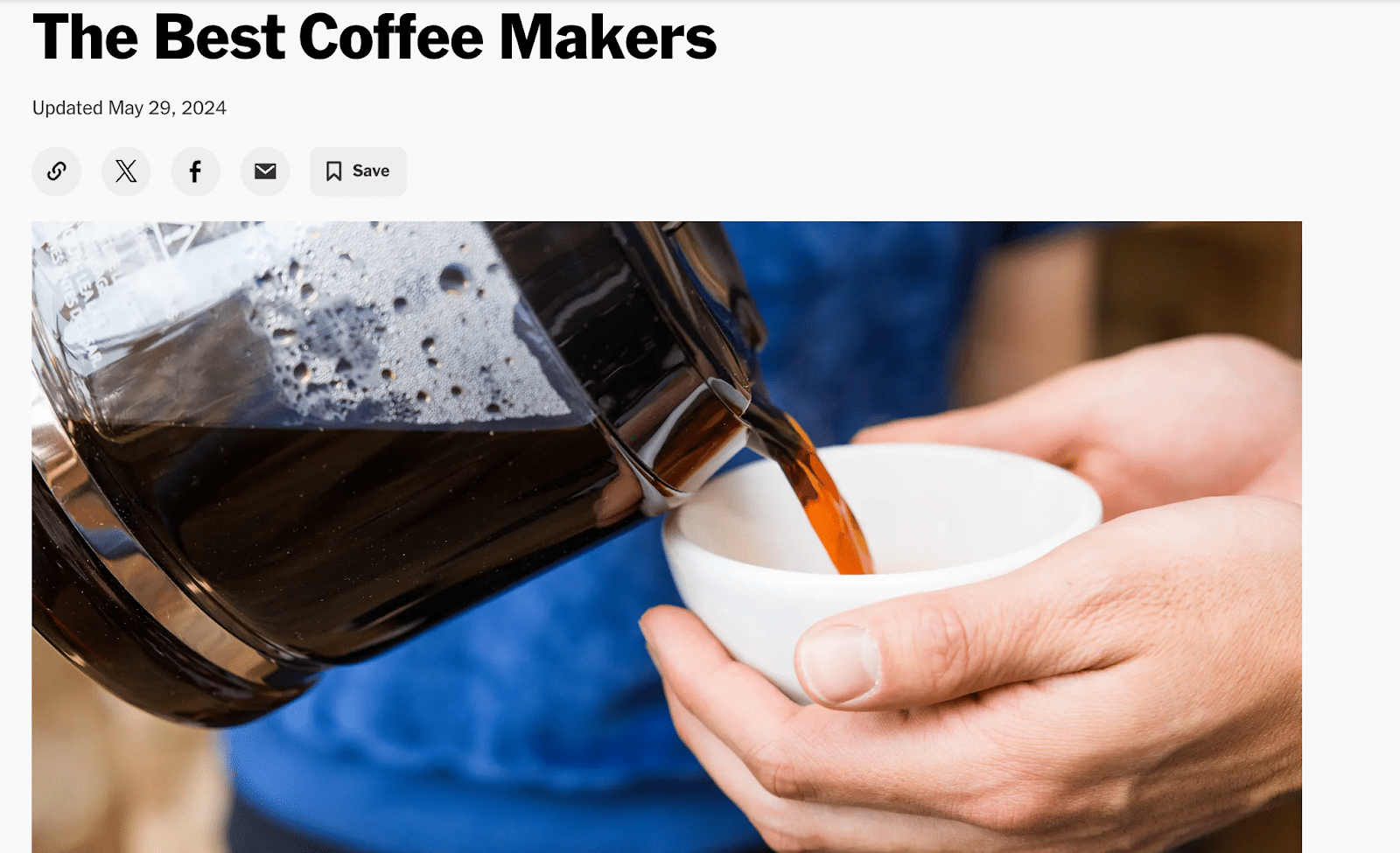
It used to perform really well for the query “coffee machines” – generally between Positions 2 to 4. Checking today, it’s pushed down to Page 2.

The entire Wirecutter site has experienced significant traffic declines over the past year, with a drop of ~6.7 million in total monthly organic sessions.
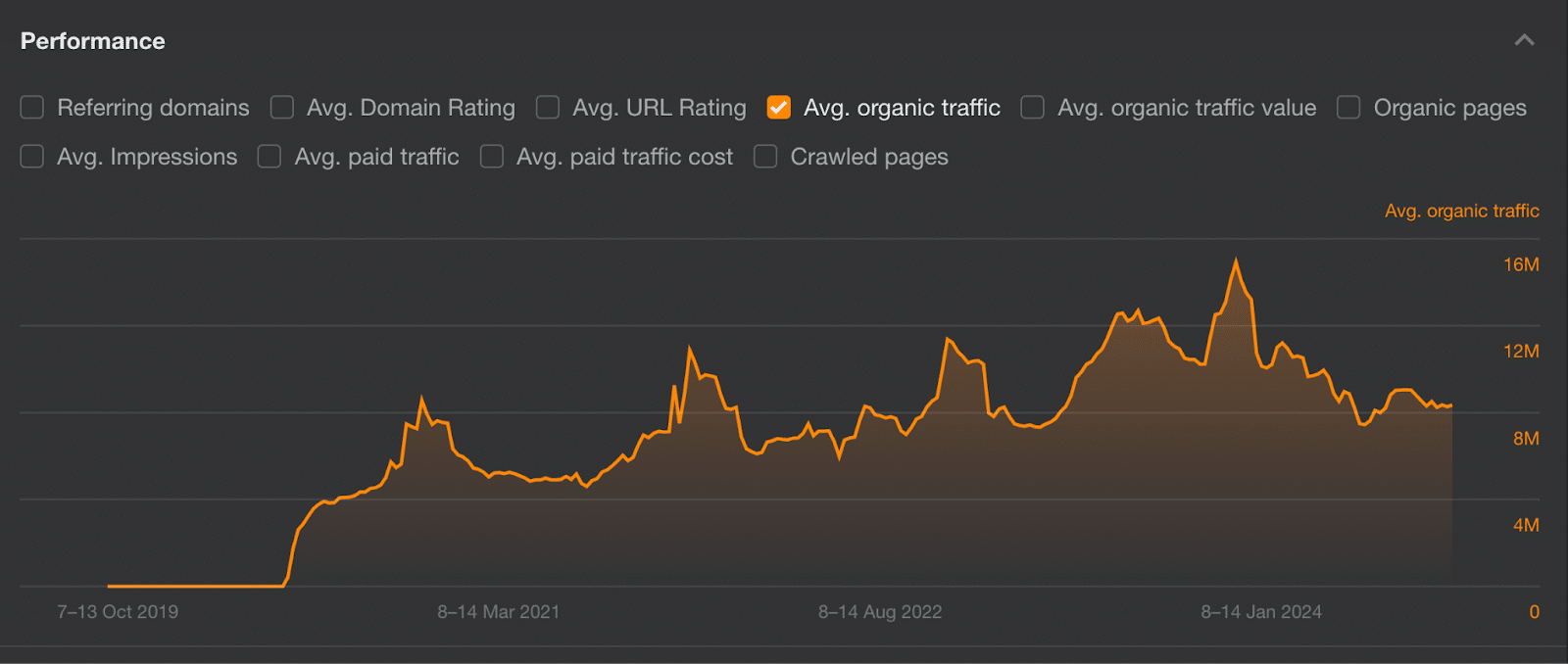
This isn’t even factoring in Google-owned features like the product grids.
However, because Google wants to be the new category page, affiliate sites don’t figure into the mix.
Sure, we can argue that other factors are at play. Reddit’s increase in organic might be one.
However, it still showcases the downward spiral of affiliate sites in today’s product-driven SERP.
Moving forward
From a business perspective, Google’s direction becomes clear when we consider all its recent changes.
Google will continue refining the search results to mirror a category page experience.
Don’t expect Google to roll back these changes. We need to anticipate more of them.
Google hasn’t started showing these aggressively in AI Overviews yet, but I guess it will.
To compete with Amazon, Google will continue to do what it needs to make its platform more friendly for ecommerce searches.
Retailers must understand this behavior and adjust their strategies accordingly.
Dig deeper: How to make your ecommerce content more helpful
https://searchengineland.com/retailers-google-new-category-page-447069